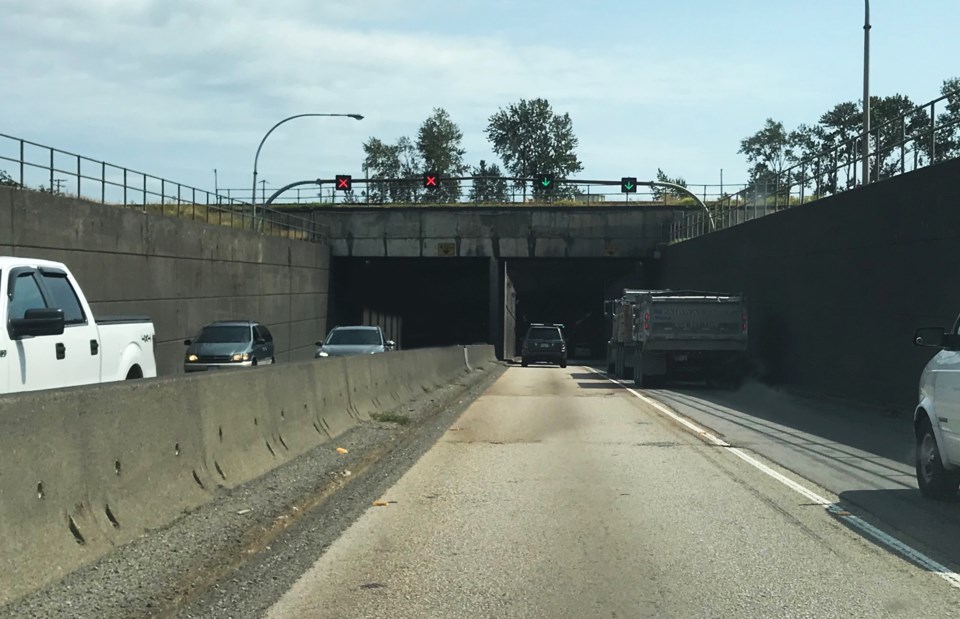A BC Supreme Court justice recently dismissed a lawsuit filed by a man who was seeking more than $9 million in damages because of a single-car accident at the George Massey Tunnel.
Bradley Darren Gordica sought damages for the Dec. 18, 2019 incident when he was driving southbound on Highway 99 in his 2017 Chevrolet Volt, at approximately 80 km/hr, just north of the tunnel near the Steveston Highway overpass.
At around 9 p.m., roughly a few hundred metres before the tunnel, a mechanical arm at one of the gates, Gate 2C used to control counterflow traffic, struck and shattered the windshield of his car.
The counterflow lane at the time was not closed to traffic and the plaintiff was not struck by the gate arm, and his car came to a stop without striking any other object. The airbags also did not deploy.
The defendants were listed as Mainroad Lower Mainland Contracting Limited Partnership, Insurance Corporation of British Columbia (ICBC), the Province of British Columbia on behalf of the Ministry of Transportation and Infrastructure, Mainroad Transtronic Services Limited Partnership and John Doe.
The plaintiff’s counsel confirmed that the case presented was focused solely upon Mainroad and its Massey 25 operator on duty at the time, while no liability evidence was led against the province or Mainroad Transtronic. The third-party claim against ICBC had been discontinued.
A July 29, 2025 reasons for judgment notes the plaintiff asserted that Mainroad was negligent in not taking sufficient measures to protect against the mechanical gate arm striking his car.
The plaintiff’s theory was that the breakaway section of the arm of Gate 2C was broken by easterly winds, causing it to swing into the lane in which Gordica was travelling.
Important to the plaintiff’s case was that an hour before the accident, Gate 2B, located about 65 metres north of Gate 2C, was reported by a member of the public as being “down” in the fast lane and impeding traffic.
That gate was tied back by a Mainroad road maintenance operator, but the plaintiff contended that worker ought to have tied back Gate 2C at the same time and in not doing so was negligent.
The reasons for judgment notes the plaintiff said he suffered injuries from the accident which ultimately caused him to stop working and cease being an equity partner at Deloitte as an international tax accountant, a career by which he earned substantial income.
He claimed damages totalling $9,005,892, a significant portion of the damages relating to the loss of income.
The defendants did assert that Gordica’s driving was deficient or contributed to the accident, however, they denied liability and described Gate 2C’s presence in the lane of travel as a “freak” occurrence. They also argued Gordica’s injuries were relatively minor and that his complaints of being unable to continue with his career are the result of his decline from pre-existing conditions he has had for years prior to the accident.
In a lengthy judgment, Justice D.M. Masuhara ruled Gordica failed to establish that the defendant Mainroad was liable for the accident.
The plaintiff also failed to establish the accident caused or contributed to his ability to continue to work.



